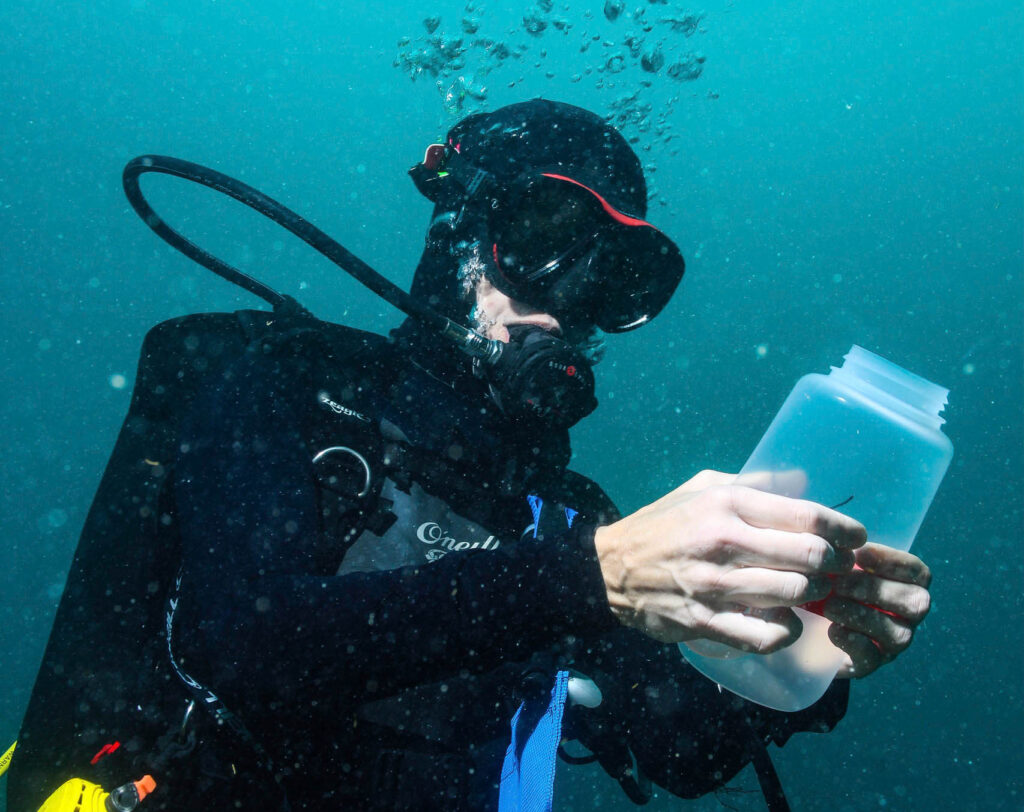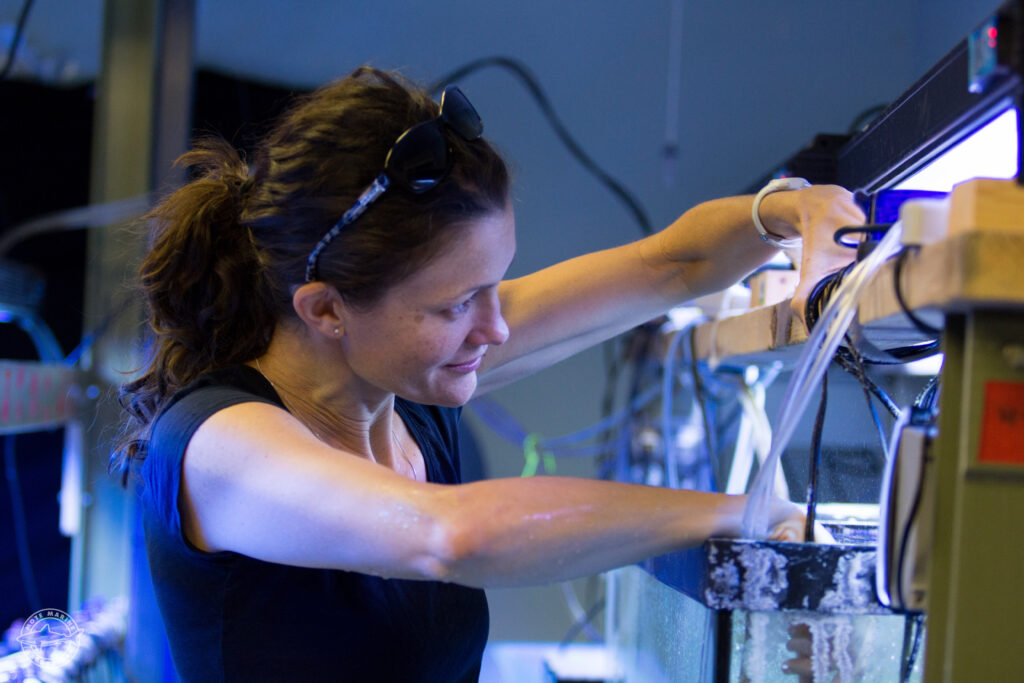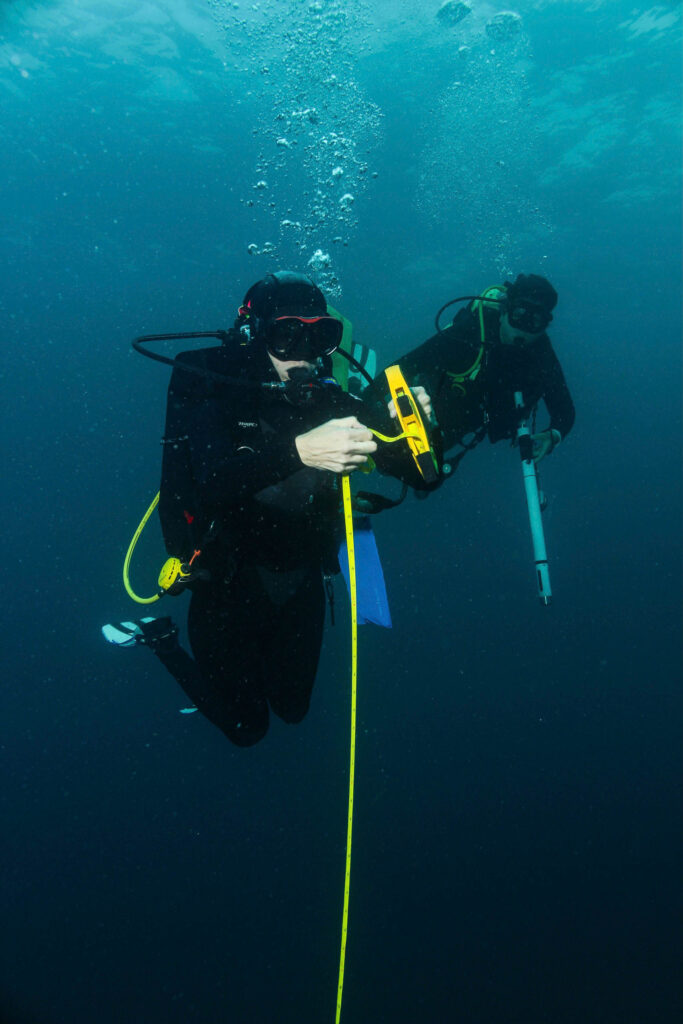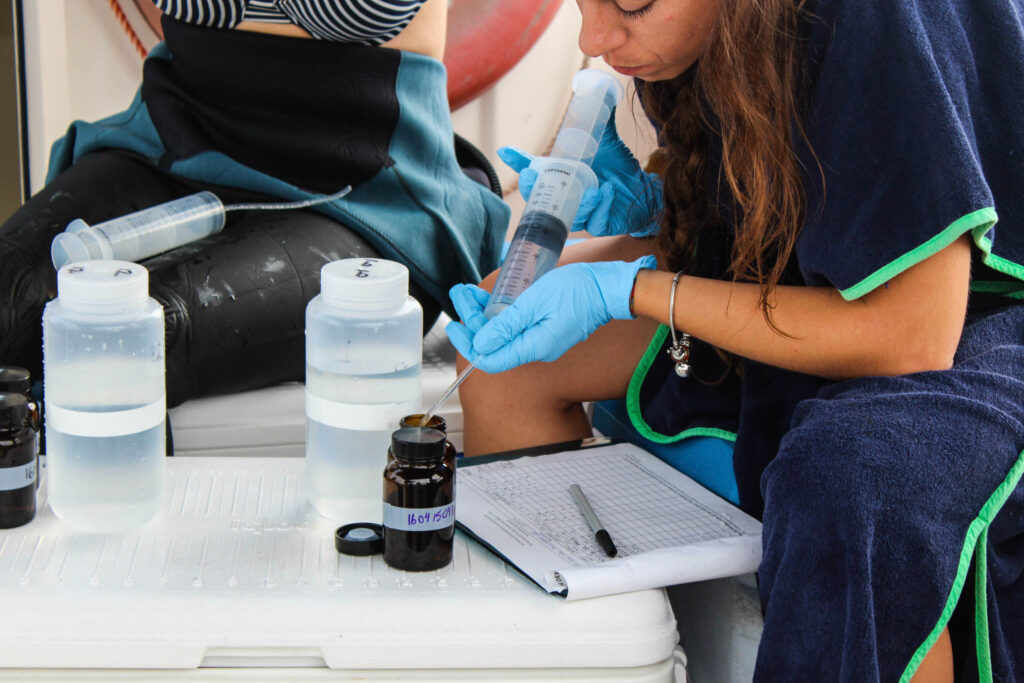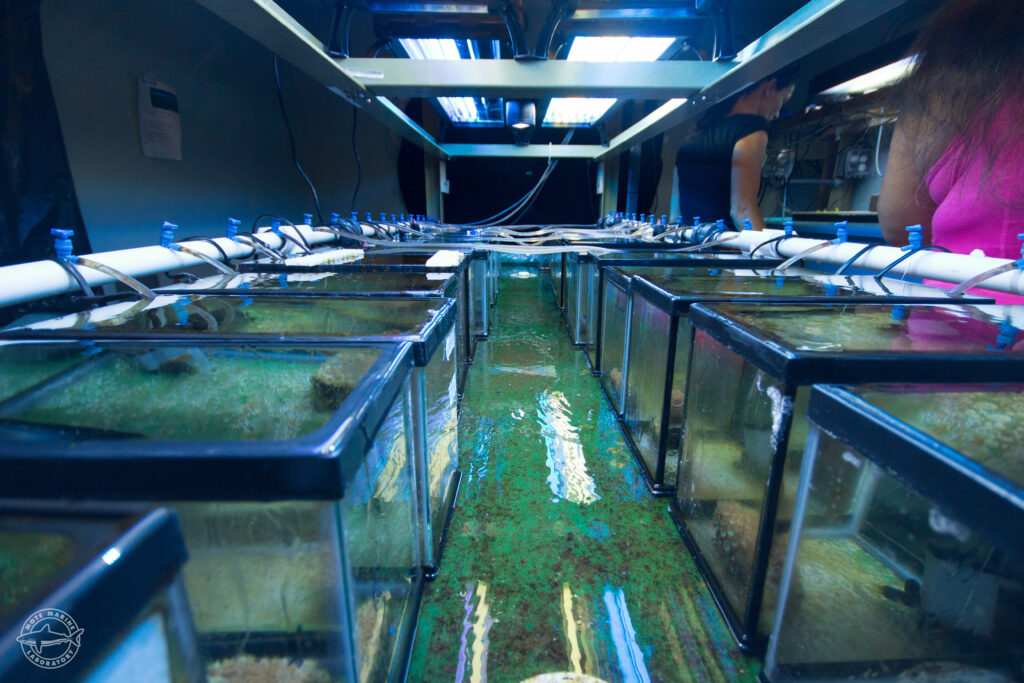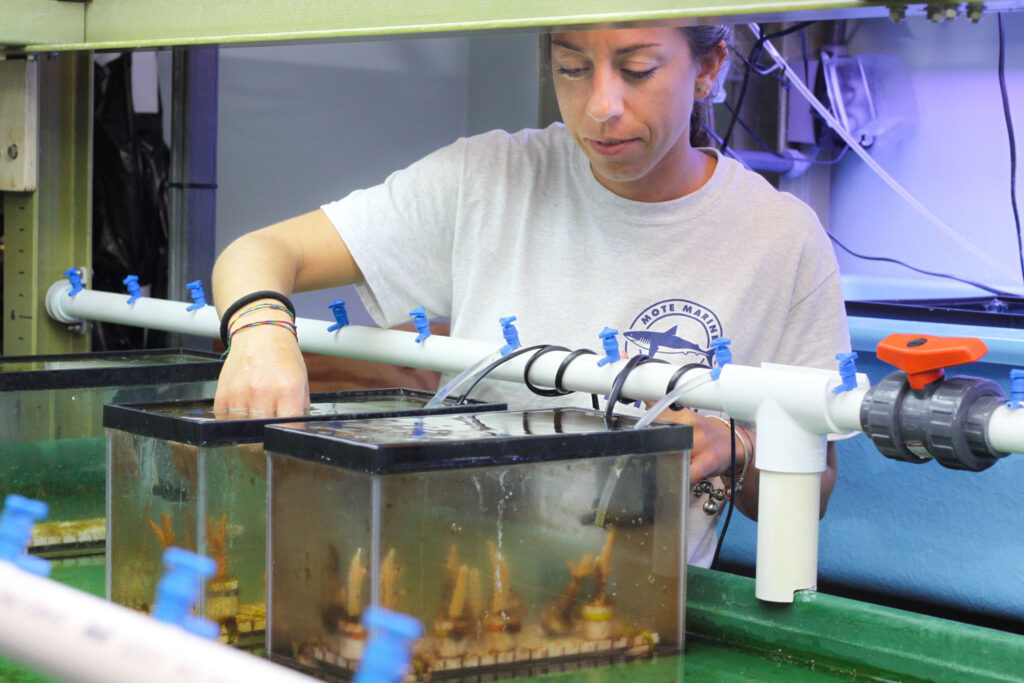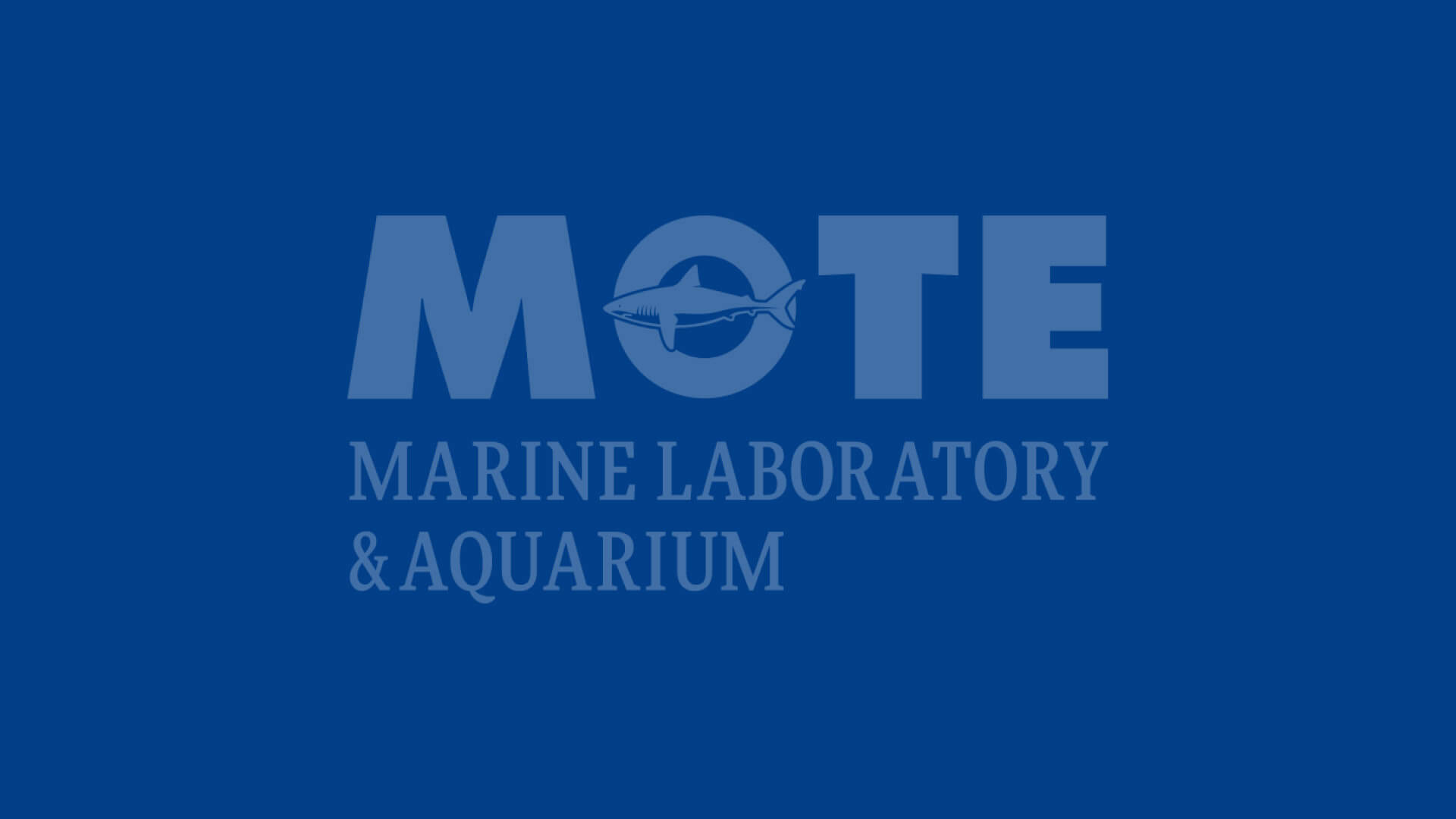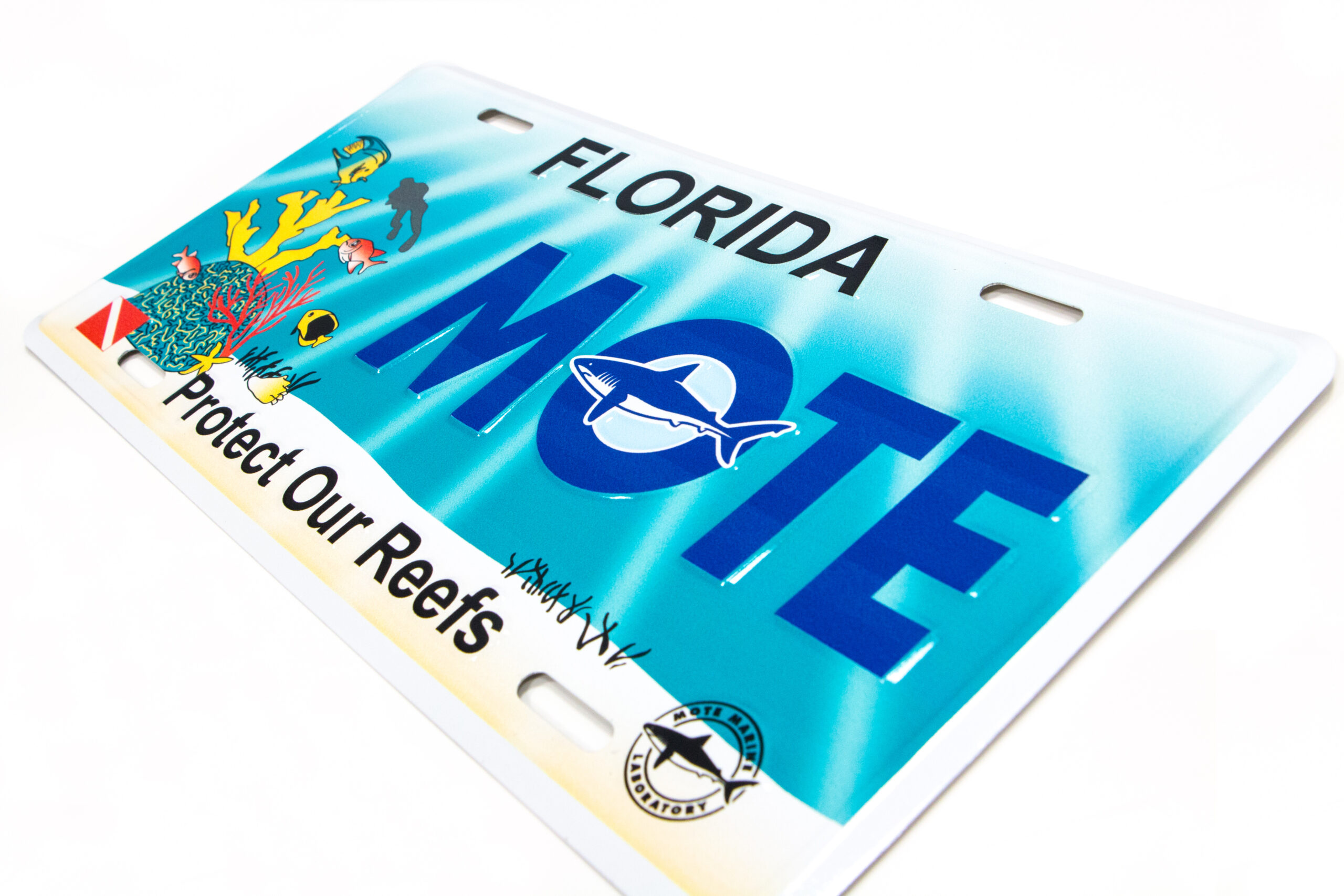Worldwide, oceans absorb about one-third of all the excess carbon dioxide in the atmosphere, which can lead to a reduction in pH and dramatic shifts in seawater carbonate chemistry. Studies have shown that ocean water is more acidic now than in pre-industrial times and is predicted to approach levels not seen in millions of years. This is known as ocean acidification. Ocean acidification is expected to impact organisms that depend upon calcium carbonate to build skeletons and shells, such as corals, some species of phytoplankton, and bivalves.
The Ocean Acidification Program at Mote was created to research and understand responses of ecologically important species — like corals — to projected levels of ocean acidification. The program is currently developing two research facilities, one in Sarasota and one at the Elizabeth Moore International Center for Coral Reef Research and Restoration on Summerland Key in the Florida Keys for studies of how corals and other reef species will react to changes in pH as well as climate change (ocean temperature). These seawater systems include both flow-through and large mesocosm-based designs.
Studies that provide advance knowledge of potential climate-driven trends in coral growth and health will permit improved modeling for prediction so that resource managers can act to protect key species and ecosystems. Development of the ocean acidification system at the Elizabeth Moore International Center for Coral Reef Research and Restoration will provide an optimum global research center for examining and modeling effects of ocean acidification on corals as well as other important estuarine and marine species.
Program scientists also study naturally acidified ocean habitats—particularly the underwater caves, springs and sinkholes known as “blue holes.”
Program Details
- Effects of temperature and pH on coral growth and physiology.
- Ocean acidification and Karenia brevis – how do changes in acidification affect K. brevis and how does K. brevis affect acidification
- Exploration of blue holes – changes in nutrients, chlorophyll and carbonate chemistry
- Southeast Ocean and Coastal Acidification Network Co-coordinator
- Florida Keys Water Quality and Climate Monitoring to inform Lower Keys Reef Restoration
- Coral Reef Acidification Lower (CoRAL) Keys: SeapHOx deployment to monitor long-term seafloor pH
Explore Coral Reef Ecosystem Research

Additional Program Information
- 2024 Hall, E.R., Heil, C.A., Frankle, J.D., Klass, S., Devillier, V., Lovko, V., Toyoda, J.H., Pierce, R. Mitigation of Karenia brevis cells and brevetoxins using curcumin, a natural supplement. Water 16, 1458. https://doi.org/10.3390/w16101458
- 2024 Dilworth J, Million WC, Ruggeri M, Hall ER, Dungan AM, Muller EM, Kenkel CD. Synergistic response to climate stressors in coral is associated with genotypic variation in baseline expression. Proc. R. Soc. B 291: 20232447. https://doi.org/10.1098/rspb.2023.2447
- 2024 Devillier, V.M., Hall, E.R., Lovko, V., Pierce, R., Anderson, D.M., Lewis, K.A. Mesocosm study of PAC-modified clay effects on Karenia brevis cells and toxins, chemical dynamics, and benthic invertebrate physiology. Harmful Algae, 134: 102609. https://doi.org/10.1016/j.hal.2024.102609
- 2024 Klepac, C.N., Petrik, C.G., Karabelas, E., Owens, J., Hall, E.R. and Muller, E.M., Assessing acute thermal assays as a rapid screening tool for coral restoration. Scientific Reports, 14(1): 1898.
- 2024 Hall, E.R., Yates, K.K., Hubbard, K.A., Garrett, M.J., Frankle, J.D. Nutrient and carbonate chemistry patterns associated with Karenia brevis blooms in three West Florida Shelf estuaries 2020-2023. Frontiers in Marine Science, 11:1331285. doi: 10.3389/fmars.2024.1331285.
- 2023 Hall, E.R., Dixon, L.K., Kirkpatrick, G.J., A. Nissanka, B.A. Pederson. Phytoplankton communities of the west coast of Florida – multiyear and seasonal responses to nutrient enrichment. Harmful Algae, 130: 102547.
- 2023 Devillier, V.M., Hall, E.R., Anderson, D.M., Lewis, K.A. Exposure of blue crab (Callinectes sapidus) to modified clay treatment of Karenia brevis as a bloom control strategy. Harmful Algae, 128: 102492.
- 2023 Wessel, M.R., Beck, M.W., Sherwood, E.T., Peebles, E.B., Hall, E. Establishing a community of practice for tidal creek research using conceptual models and open science. Florida Scientist, 86(2): 362-369.
- 2023 Culter, J.K., Hall, E.R., Byrd, G., Cole, C. Diving techniques for exploration of submarine karst features of the west Florida continental shelf. Diving for Science 2023: Proceedings of the American Academy of Underwater Sciences 40th Symposium. Verde, E.A. & Scott-Ireton, D.A., eds. pp. 5-17.
- 2023 Klepac C.N., Eaton K.R., Petrik C.G., Arick L.N., Hall E.R., Muller E.M. Symbiont composition and coral genotype determines massive coral species performance under end-of-century climate scenarios. Front. Mar. Sci. 10:1026426. doi: 10.3389/fmars.2023.10264262022\
- 2022 Mallon, J., Cyronak, T., Hall, E.R., Banaszak, A.T., Exton, D.A., Bass, A.M. Light-driven dynamics between calcification and production in functionally diverse coral reef calcifiers. Limnology and Oceanography 9999:1-16. doi: 10.1002/lno.12002
- 2022 Osborne, E., X. Hu, E.R. Hall, K. Yates, J. Vreeland-Dawson, K. Shamberger, L. Barbero, J.M. Hernandez-Ayon, F.A. Gomez, T. Hicks, Y.Y. Xu, M.R. McCutcheon, M. AAcquafredda, C. Chapa-Balcorta, O. Norzagaray, D. Pierrot, A. Munoz-Caravaca, K.L. Dobson, N. Williams, N. Rabaliais, P. Dash. Ocean acidification in the Gulf of Mexico: Drivers, impacts, and unknowns. Progress in Oceanography, p.102882 https://doi.org/10.1016/j.pocean.2022.102882
- 2022 Glibert, P.M., W.J. Cai, E.R. Hall, M. Li, K.L. Main, K.A. Rose, J.M. Testa, N.K. Vidyarathna. Stressing over the Complexities of Multiple Stressors in Marine and Estuarine Systems. Ocean-Land-Atmosphere Research, 2022.
- 2022 Burnham, K.A., Nowicki, R.J., Hall, E.R., Pi, J. and Page, H.N. Effects of ocean acidification on the performance and interaction of fleshy macroalgae and a grazing sea urchin. Journal of Experimental Marine Biology and Ecology, 547, p.151662.
- 2021 Page, HN, C Hewett, H Tompkins, and ER Hall. Ocean acidification and direct interactions affect coral, macroalga, and sponge growth in the Florida Keys. J. Mar. Sci. Eng. 9, 739. https://doi.org/10.3390/jmse9070739
- 2021 Patin, NV, ZA Dietrich, A Stancil, M Quinan, JS Beckler, ER Hall, J Culter, CG Smith, M Teillefert, and FJ Sewart. Gulf of Mexico blue hole harbors high levels of novel microbial lineages. The ISME Journal, https://doi.org/10.1038/s41396-021-00917-x.
- 2020 Hall, E.R., L. Wickes, L.E. Burnett, G.I. Scott, D. Hernandez, K.K. Yates, L. Barbero, J.J. Reimer, M. Baalousha, J. Mintz, W.-J. Cai, J.K. Craig, M.R. DeVoe, W.S. Fisher, T.K. Hathaway, E.B. Jewett, Z. Johnson, P. Keener, R.S. Mordecai, S. Noakes, C. Phillips, P.A. Sandifer, A. Schnetzer, J. Styron. Acidification in the U.S. Southeast: causes, potential consequences and the role of the Southeast Ocean and Coastal Acidification Network. Frontiers in Marine Science, 7:548. doi: 10.3389/fmars.2020.00548
- 2018 Hall, E.R., E.M. Muller, T. Goulet, J. Bellworthy, K.B. Ritchie, and M. Fine. 2018. Eutrophication may compromise the resilience of the Red Sea coral Stylophora pistillata to global change. Marine Pollution Bulletin 131:701-711.
- 2017 Muller, E.M., N.M. Leporacci, K.J. Macartney, A.G. Shea, R.E. Crane, E.R. Hall, and K.B. Ritchie. Low pH reduces the virulence of black band disease on Orbicella faveolata. PLoS ONE, 12(6): e0178869.
- 2016 Banc-Prandi G., K. Imhof, E. Hall, and K. Ritchie. Interspecific coral bacterial competition under ocean acidification scenarios. Proceedings from the 13th International Coral Reef Symposium, Honolulu: 58-70.
- 2015 Hall, E.R., B. DeGroot, and M. Fine. Lesion recovery of two scleractinian corals under low pH conditions: implications for restoration efforts. Marine Pollution Bulletin, 100:321-326.
- 2014 L.K. Dixon, G.J. Kirkpatrick, E.R. Hall, and A. Nissanka. Nitrogen, phosphorus and silica on the West Florida Shelf: Patterns and relationships with Karenia spp. occurrence. Harmful Algae 38:8-19. http://dx.doi.org/10.1016/j.hal.2014.07.001
- 2014 Heil, C., L.K. Dixon, J. Lenes, M. Garrett, E. Hall, L. Killberg-Thorsen, D. Bronk, K. Meyer, B. Walsh, J. O Neil, L. Procise, M. Mulholland, G. Hitchcock, G. Kirkpatrick, R. Weisberg, and J.J. Walsh. Nutrients, management and Karenia blooms: sources, sinks and cycling of nutrients to Karenia brevis blooms in the eastern Gulf of Mexico. Harmful Algae, 38:127-140. http://dx.doi.org/10.1016/j.hal.2014.07.016
- 2012 Hall, E.R., D. Vaughan, and M.P. Crosby. Development of ocean acidification flow thru experimental raceway units (OAFTERU). Proceedings from the 12th International Coral Reef Symposium, Cairns, Australia.
- 2012 Hall, E.R., K. Nierenberg, A.J. Boyes, C.A. Heil, L.J. Flewelling, and B. Kirkpatrick. The art of red tide science. Harmful Algae 17:1-5.
- 2006 Hall, E.R., Booth, M.M., Delfino, J.J. Sedimentary organic matter in the Alafia and Little Manatee Rivers in West-Central Florida. Florida Scientist 60:224-235.
- Perault, J.R., Muller, E.M, Hall, E.R., Rotjan, R.D. Presence of the northern star coral (Astrangia oculata) as an epibiont on the carapace of a nesting loggerhead turtle (Caretta caretta) in the western Gulf of Mexico, USA. Reef Encounters 31(1):46
- Muller EM, Dungan AM, Million WC, Eaton KR, Petrik C, Bartels E, Hall ER, Kenkel CD. Heritable variation and lack of tradeoffs suggest adaptive capacity in Acropora cervicornis despite negative synergism under climate change scenarios. Proc. R. Soc. B 288: 20210923. https://doi.org/10.1098/rspb.2021.0923

